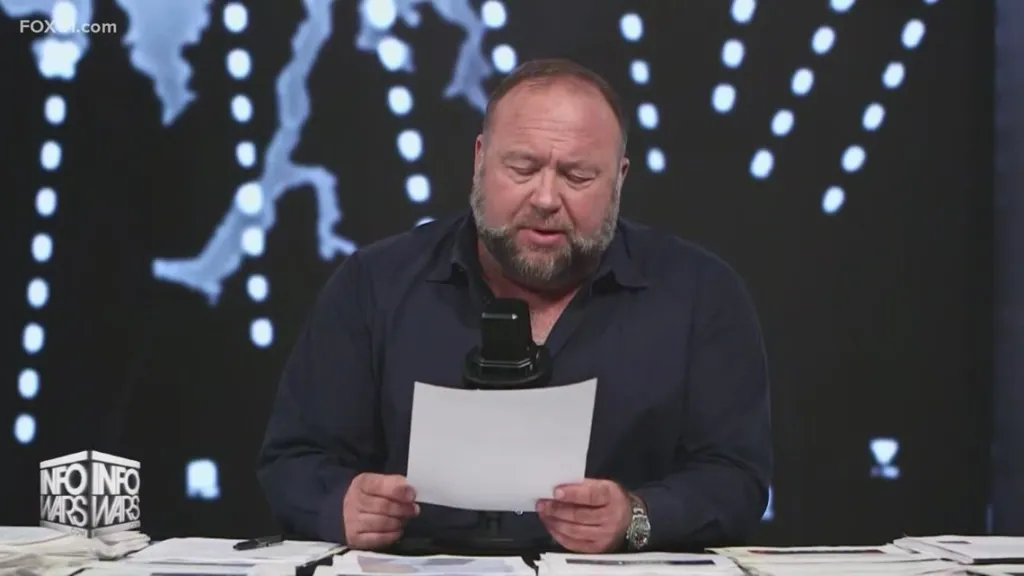We cherish our freedoms in the U.S., especially “freedom of speech.” And it’s perfectly legal –– and possibly, a great American tradition –– to cry First Amendment foul, even when foul-mouthed speech runs afoul of First Amendment protections. There are two recent cases in point: Alex Jones and Donald Trump. For you, dear followers of Perfectly Legal but Wrong, we can try to set the record straight. Spoiler alert: neither Jones nor Trump have First Amendment “rights” that have been violated, either by the massive civil verdict against Jones, or Trump’s banishment from the most popular social media sites, Twitter and Facebook.
The First Amendment, adopted in 1789, provides that: Congress shall make no law respecting an establishment of religion, or prohibiting the free exercise thereof; or abridging the freedom of speech, or of the press; or the right of the people peaceably to assemble, and to petition the government for a redress of grievances.
Initially, only the federal government was restricted from infringing freedom of speech or the press. (“Congress shall make no law. . . “) Eventually, the Due Process clause of the 14th Amendment was used to challenge state actions that infringed the Bill of Rights, which led with the First Amendment, but also included rights against self-incrimination, unreasonable searches and seizures, takings by government, and the right to bear arms.
But in 1789, the Founders –– and that states that ratified the Bill of Rights as a restraint on the new federal government –– never meant to disturb state common law, which included causes of actions for defamation, which is any intentionally false communication that harms another person’s reputation. This ancient cause of action in “tort” was imported from England’s common law, and was actively used by the 13 original states in 1789, and that activity continues to this day.
Predictably, litigation over the First Amendment has been continuous and abundant. Over time, he Supreme Court of the United States (SCOTUS) has made it clear that First Amendment rights are not absolute; it has never ruled that defamation is protected speech, and the Court has carved out various exceptions to the “right of free speech,” including (famously) speech that creates a “clear and present danger,” such as “shouting ‘FIRE’ in a crowded theatre” when there is no fire. Exceptions also include speech that incites others to violence.
In Brandenburg v. Ohio (1969), the Court overturned the conviction of Clarence Brandenburg, a member of the Ku Klux Klan who had made inflammatory statements, by insisting that it would only punish advocacy that “is directed to inciting or producing imminent lawless action and is likely to incite or produce such action.” In Hess v. Indiana (1973), the Court applied Brandenburg and said that before an individual’s speech could fall under the unprotected category of incitement to imminent lawless action, the speech must lead to “imminent disorder.”
Arguably, President Trump’s speech and actions on January 6, 2021 were incitement to “imminent lawless action.” When Twitter and Facebook “de-platformed” him after January 6th, they were (1) not government actors, so there was no government infringement of free speech rights, and (2) even if these social media platforms were agents of government action, his speech –– using SCOTUS precedents –– was not speech that was clearly protected by the First Amendment. Censorship is something governments should not do, at risk of violating the First Amendment; social media content moderation and de-platforming has not been ruled as forbidden censorship, and they are not (yet) considered government actors.
Trump sued social media platforms,
Predictably, he lost.
https://legalnewsline.com/stories/625730931-judge-tosses-trump-s-lawsuit-over-twitter-ban
Trump’s best argument was that the social media platforms were essentially common carriers that had to carry all varieties of speakers. SCOTUS may take up that argument at some point, but for now, social media platforms are not “common carriers” with obligations to carry one and all.
Alex Jones’ claims of free speech rights are even less compelling than Donald Trump’s. Alex Jones called the Sandy Hook Elementary School shooting a hoax on his radio show “Infowars,” claiming it was “staged” by the government so they could “go after our guns” and “start a civil war.” In the aftermath of the tragedy, Jones called the shooting “completely false” and accused grieving parents of being “crisis actors,” or people acting as victims of a tragic event to sway public opinion. In reality, 20 children and six staff members died at the school that day, but a growing audience for Jones’ disinformation began threatening the parents who had lost their children. In essence, Jones was falsely accusing the parents of being actors who had not lost their children, and part of a government conspiracy to take away citizens’ guns.
During the jury’s verdict in October 2022 that Jones should pay nearly $1 billion in damages, Jones was unrepentant. Video. His lawyer portrayed the trial as unfair and pledged to appeal. “Today is a very, very, very dark day for freedom of speech,” he said outside court. Yes, here the state is allowing punishment for defamatory speech, but ever since 1789, and even before, states have been holding court in defamation cases, and it is misleading (to say the least) to say it’s a dark day for freedom of speech.
In short, while it’s perfectly legal to claim violations of the right of free speech, it’s just not right, especially where false, defamatory speech has never been protected by the First Amendment, and where incitement to imminent lawless action (as on January 6th) proves that your self-proclaimed “rights” are a threat to the public good.
.
